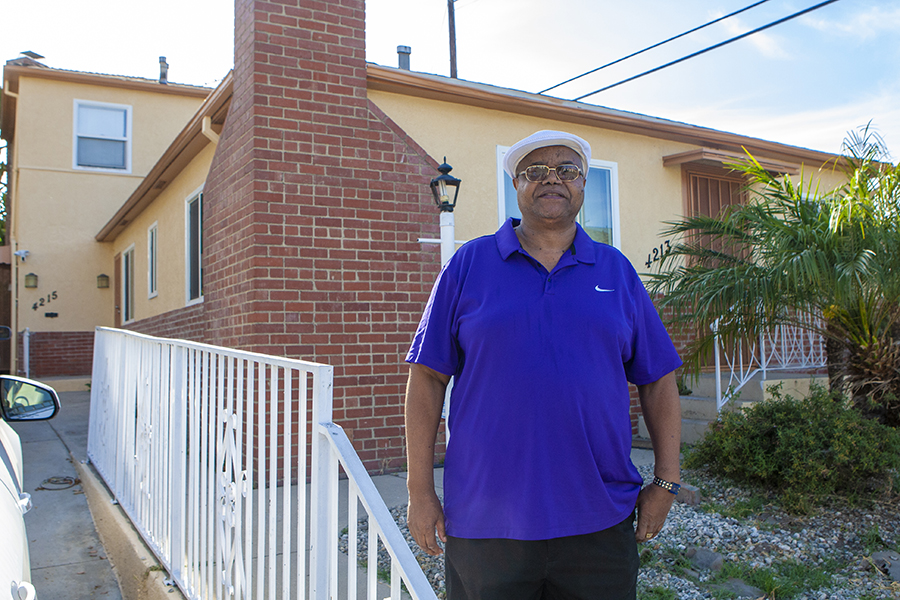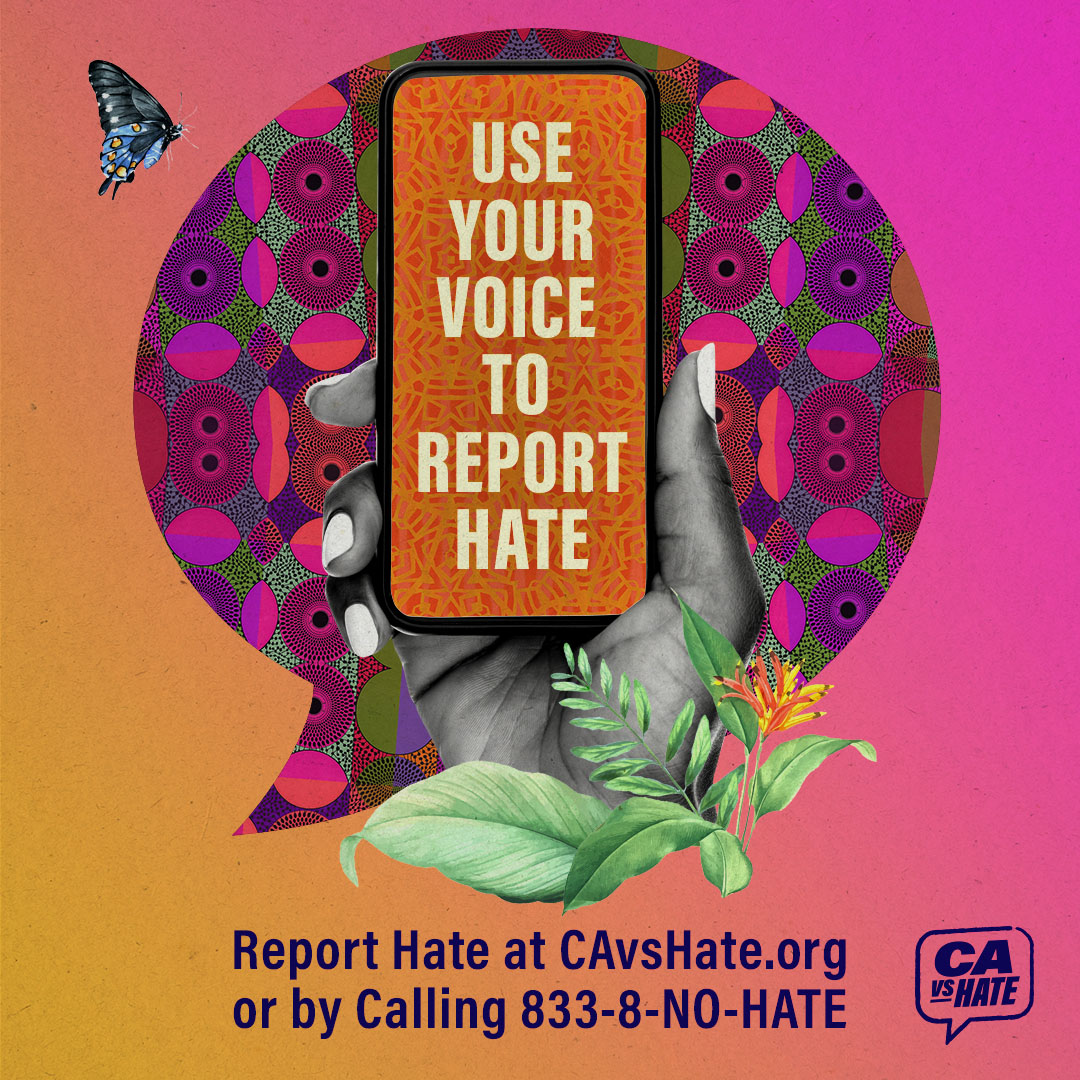Small rental property owners are struggling to make mortgage payments, which may force them to sell properties. This could reduce affordable housing that is available to locals.
By Jason Lewis
During the COVID-19 crisis there has been a much needed movement to protect renters who are struggling to pay for housing while they are out of work. However, one group of community members have struggled to receive aid.
Terra Phelps is a U.S. Air Force Veteran who owns a two-unit duplex in Leimert Park. He lives in one unit and rents out the other. While he is a landlord, he isn’t part of a large corporation. He isn’t detached from the community like a lot of landlords, who may live in other communities, cities, states, or even countries.
Phelps isn’t a big business that can weather this storm, and unlike a corporate landlord, he’s showing compassion to his tenant’s situation.
“I have to work harder to meet my mortgage, and at the same time I would like to help out my tenant,” he said. “I pretty much work with my tenant, understanding his situation. So not only did we do a forbearance, we forgave the rent for this month.”
This is the only property that Phelps owns, and while he agrees that tenants need aid from the government, he also feels that “mom-and-pop” landlords should also be protected if they are to keep their property.
“If we keep going this way, I’d have to sell,” he said.
Phelps has joined a local group of Black and Latino landlords called the Coalition of Small Rental Property Owners. This is a new and growing grassroots alliance of mom-and-pop landlords who are advocating for housing assistance that protects both renters and landlords.
“While we understand the need to provide relief for renters, no one seems to be giving meaningful thought and consideration to the fact that there are landlords who have financial obligations,” said Diane Robertson, a property owner in South Los Angeles. “Most small rental property owners, or ‘mom-and-pop’ landlords, operate under very small margins. I think that there’s a misconception that landlords are wealthy. That their rental incomes create this wealthy lifestyle for them. For mom-and-pop landlords, that’s simply not the case. Particularly in African-American and Latino communities.”
While corporate landlords are more likely to view their properties strictly as a business, mom-and-pop landlords are much more likely to consider the issues that people in local communities deal with. They are much more likely to treat their tenant like a person instead of simply focusing on the financial bottom line.
“We have members of our coalition who have not raised their rents in a decade,” Robertson said. “We have people who have not raised their rents because they would prefer to have a stable tenant. They would prefer to offer that to someone who in all likelihood would have to move if their rent continued to go up over the years. By doing this, it not only helps the tenant, but it helps the community because it stabilizes the community when you have long-term renters.
“We have members who give people an opportunity at a second chance. We have members who rent to tenants who have less than stellar credit scores; who may be rejected on that basis by another property owner. Personally I have never issued a three-day notice to pay or quit, even though I have had tenants who have paid late. That’s not the relationship that I want with my tenants. I am also very sensitive to the fact that things happen.”
With rents skyrocketing throughout the greater Los Angeles area, Robertson said that mom-and-pop landlords are providing affordable housing to local community members.
“We’ve been hearing in our city that we need more affordable housing, well we’re providing affordable housing,” Robertson said. “If this results in a glut of foreclosures, there are going to be corporations buying up these properties at fire-sale prices, who will not approach this the way that we do. Who will not keep the rents low.”
Most mom-and-pop landlords live and raise their families in the communities that they own property in, so they are personally invested in these neighborhoods. They should not be grouped with corporate landlords. They are no different from a typical community member.
One major issue that mom-and-pop landlords are having is that many of them do not qualify for the Small Business Association’s Paycheck Protection Program (PPP), or they will not be able to turn the loan into a grant like a corporation can.
“One eligibility requirement is that you have payroll,” Robertson said. “We don’t have payroll. Not in that sense. We pay maintenance workers, but we don’t have the payroll documentation that this program requires. We were told that the PPP is still available to us, but in order for it to be converted into a grant, which does not have to be paid back, 75 percent of the amount of funds that you receive has to go to payroll. Otherwise it’s just a loan that has to be paid back. This does not make us whole. We should not be forced to take out a loan that needs to be repaid from our pockets. It will never be repaid from back rent that’s owed. We’ll never see the back rent.”
Robertson said that when mom-and-pop landlords are protected, renters are protected as well.
“If we start to lose our properties, what’s going to happen is that tenants will not be living there very long after the building is sold,” she said.
Robertson said that the bank lenders aren’t offering adequate relief, if any, during this time, so her group is looking for local city officials to assist them. The coalition would like to see a rent voucher program (similar to Section 8) created where funds are designated specifically for payment of rent.
The coalition will hold a conference call meeting this coming week with Los Angeles City Councilmembers Herb Wesson and Marqueece Harris-Dawson.
For more information about the Coalition of Small Rental Property Owners, contact them at This email address is being protected from spambots. You need JavaScript enabled to view it..










